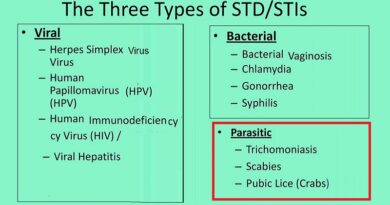Eczema Causes, Symptoms, and Treatments
Last Updated on 02/09/2026 by Helal Medical
Eczema is a common skin condition that affects millions of people worldwide. It can be itchy, uncomfortable, and unsightly. While it’s not life-threatening, eczema can be persistent and challenging. In this blog post, we’ll explore what eczema is, its causes, symptoms, and available treatments.
What is Eczema?
It also known as atopic dermatitis is a chronic skin disease that causes inflammation and itching. It’s a long-lasting condition and tends to flare sometimes. It appears anywhere on the body but typically affects the hands, feet, arms, and legs. It’s most commonly seen in infants and young children, but also affects adults. People with atopic dermatitis are at risk of developing food allergies, hay fever, and asthma.
Causes of Eczema
The exact cause of eczema is unknown, but it’s believed to be a combination of genetic and environmental factors. People with a family history of eczema, asthma, or allergies are more likely to develop the condition. Eczema is often triggered by certain irritants, such as soaps, detergents, wool, and synthetic fabrics. Other triggers may include stress, hormonal changes, and changes in temperature or humidity.
- Genetics:
If one or both parents have eczema, it is highly likely that their children will also develop the condition. This is because genetic factors can affect the skin’s ability to function as a barrier against harmful substances. - Immune system:
The improper functioning of the immune system can contribute to the development of eczema. The immune system is responsible for protecting the body against infections and harmful invaders, and when it malfunctions, it can lead to the occurrence of this skin condition. - Dry skin diminishes the skin’s ability to defend against irritants and allergens, which can result in inflammation and the development of eczema.
- Infection:
The presence of Staphylococcus aureus, a type of bacteria that causes sweat buildup, can significantly inflame the skin and contribute to the development of eczema. - Environmental factors:
Such as pollen and cigarette smoke, can also trigger eczema flare-ups.
Symptoms
Symptoms vary depending on the severity of the condition, and the most common symptoms include:
- Itching, which can be severe and persistent
- Dry, scaly, or rough skin
- Redness and inflammation
- Cracked or thickened skin
- Blisters or oozing
In infants, eczema may appear as a rash on the face, scalp, or arms and legs. In children and adults, it’s typically found on the hands, feet, and inside of the elbows and knees. It is very uncomfortable and may cause sleep disturbances or affect daily activities.
Treatment
While there is no cure for eczema, several treatments are available to manage the symptoms. The most common treatments include:
- Moisturizers:
Regularly applying a moisturizer can prevent dryness and itching. - Topical corticosteroids:
These prescription creams or ointments can reduce inflammation and itching. - Immunosuppressants:
These medications suppress the immune system and may be prescribed for severe cases of eczema. - Antihistamines:
Antihistamines can reduce itching and help the patient to better sleep.
In addition to these treatments, it’s important to identify and avoid triggers that may exacerbate eczema. This may include using fragrance-free products, avoiding certain fabrics, and managing stress levels.
Preventing Eczema Flare-Ups
Eczema is a chronic condition, but there are steps you can take to prevent flare-ups and reduce the symptoms. These include:
- Moisturizing regularly:
Keep your skin well-moisturized so that it doesn’t dry out causing further irritation. - Avoiding irritants and triggers
- Managing stress levels
- Keeping the skin cool and dry (not wet)
- Using fragrance-free products
SUMMARY
Eczema is a common skin condition that affects people of all ages. While there is no cure, several treatments are available to manage the symptoms. Identifying triggers and taking steps to prevent flare-ups can improve the quality of life for those with this condition. If you’re experiencing symptoms of eczema, consult with a healthcare professional for an accurate diagnosis and treatment. You can also drop a question below in the comment section.
Discover more from Helal Medical Manila
Subscribe to get the latest posts sent to your email.



